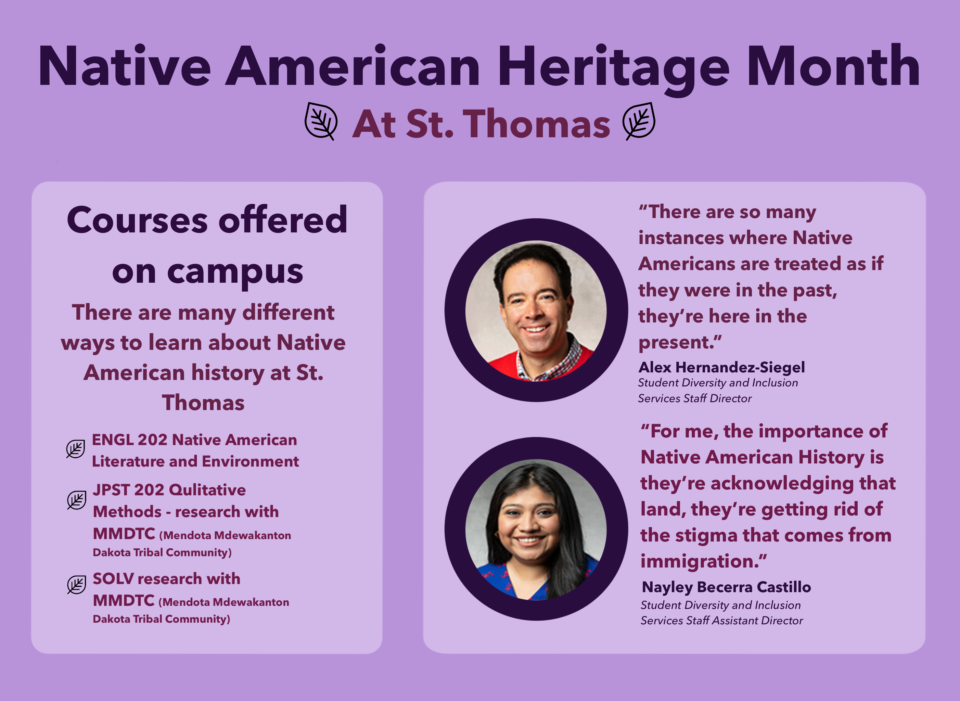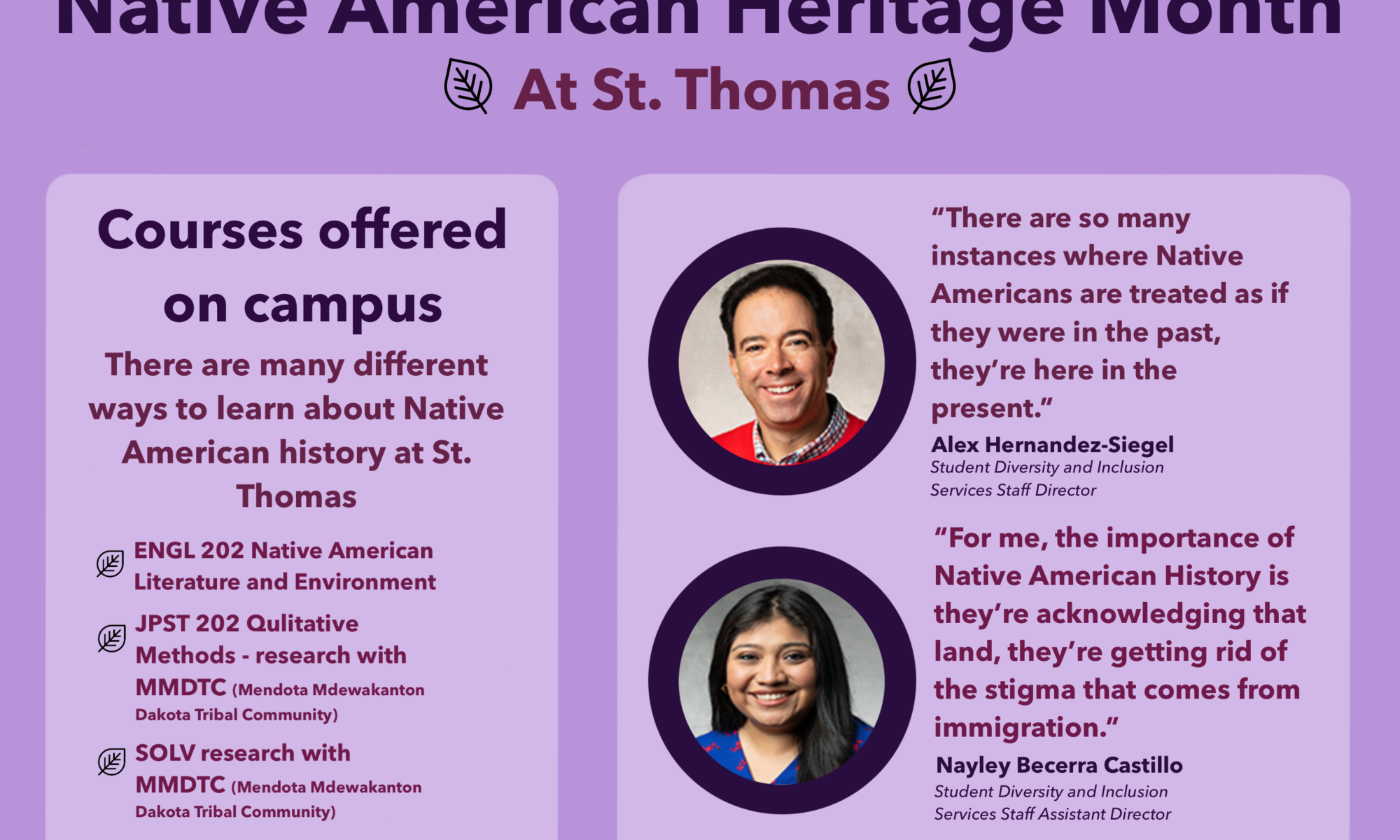
November is Native American Heritage Month, a time to celebrate Native American people, culture and history and to cultivate a sense of belonging for a group that has often been denied inclusion in the United States.
While the month is a start in recognizing Native American Heritage, Nayely Becerra Balbuena, St. Thomas’ assistant director of Student Diversity and Inclusion Services, still questioned her culture’s role in America as she grew up.
“I felt rejected being a part of the United States and being an American,” Balbuena said.
Balbuena questioned if she “truly belonged here” or if she “was intruding on the land.”
Balbuena grew up in the U.S. as an undocumented immigrant from Mexico with Native American ancestry. She expressed how celebrating her culture with those from a similar heritage helped her feel a sense of belonging.
“It took away years of guilt that I had felt,” Balbuena said. “The importance is getting rid of that stigma that comes with immigration.”
Native American culture is integral to the American culture we know today.
“The multicultural nature of our society is what gives it strength,” Student Diversity and Inclusion Services director Alex Hernandez-Siegel said. “We have to honor the foundations of the Indigenous people.”
Hernandez-Siegel was part of the team that helped implement the Land Acknowledgment, which recognized that St. Thomas was built on stolen Dakota land, just over one year ago.
St. Thomas hosted several events throughout the month to involve students in celebrating Native American Heritage.
“The events balance academic learning as well as experiencing immersion in the indigenous communities in the Twin Cities,” Balbuena said.
Both Balbuena and Hernandez-Siegel encouraged all students to get involved in learning about the culture of Native American people at these events.
“I’d like to see students engaged in one thing,” Hernandez-Siegel said. “It goes a long way for not just personal growth, but for community growth when people just show up.”
Hernandez-Siegel says that there is still more to be done to right the wrongs of the past.
“We have Native American Heritage Month, but I want people to be aware of this every single day,” Hernandez-Siegel said.
Change is always hard, especially changes regarding a nationwide issue such as this one. Making a change like that takes more than individual efforts, Balbuena said.
“We as a country often rely on individuals to move communities forward,” said Balbuena. “We, the community, need to move ourselves forward.”
As for what can be done, Hernandez-Siegel believes that part of the problem lies in the fact that this is not widely considered as a current issue, rather it is seen as one of the past.
“There are so many instances where Native Americans are treated as if they were in the past,” Hernandez-Siegel said. “They’re here in the present.”
The real change, Hernandez-Siegel believes, will come from people thinking critically about things that continue to cause oppression today.
“Putting yourself in a brave space and continuing to challenge oppression,” Hernandez-Siegel said. “The best leaders only empower others.”
Derek Badger can be reached at badg7629@stthomas.edu.

